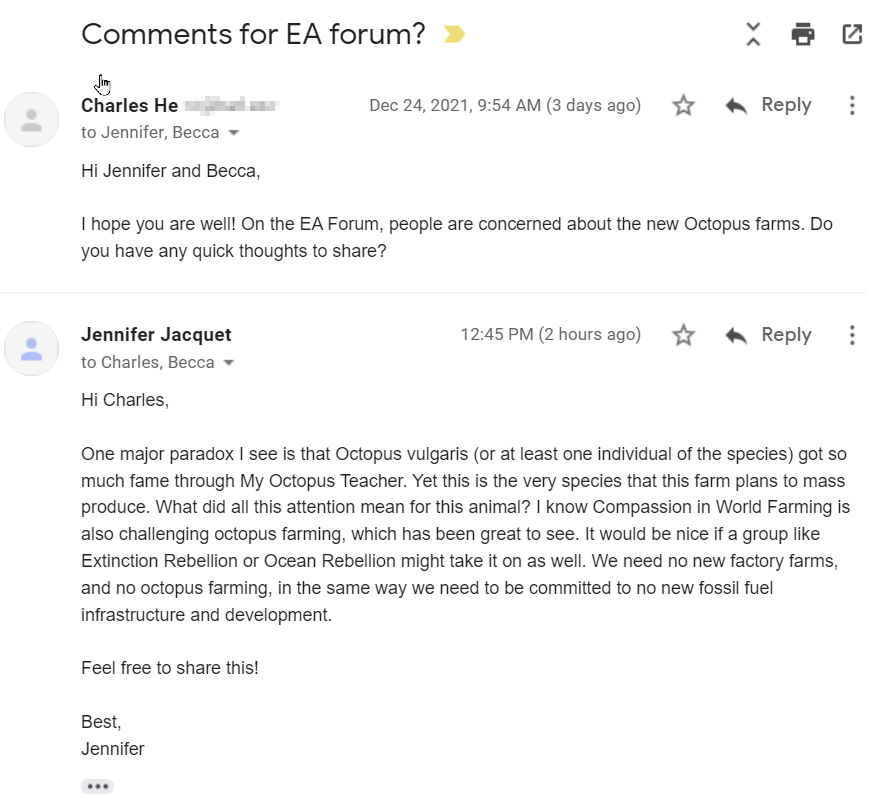First post on the forum so be gentle.
TL;DR: The Spanish company Nueva Pescanova is planning to farm octopus and begin selling it on the market in 2023. They intend to sell 3,000 tons of farmed octopus per year, which amounts to several hundred thousand octopuses. This is concerning given that octopuses are highly intelligent animals; there are no released standards for how the octopuses are going to be kept and raised, nor for how they will be slaughtered. There doesn't seem to be much in the way of coordinated action against this yet.
Link to the article: https://www.bbc.com/news/science-environment-59667645



Here's some stuff I found while researching this a while ago.
Most of the evidence often cited for octopus' high intelligence are insufficient (though it’s an open question), including two behavioural findings below (i.e. hiding inside a coconut and opening a jar) and the often cited anatomical features (e.g. large nervous system)[1][2]. Undoubtedly, the evidence for cephalopod intelligence is unlike the evidence for birds and apes intelligence, both in the number and quality of studies, and in the level of complexity of the test tasks[3]. In fact, given the hype behind cephalopod intelligence (mostly motivated by their anatomical neurological features), the lack of sufficient evidence seems like a good indication no evidence will be found.
Hiding inside a coconut
One study with around 20 octopuses in a single location describes this[4]. However, the degree of flexibility observed doesn’t seem to merit being called “very smart” (and perhaps can’t even be classed as tool-use). All they describe is octopuses sometimes hiding inside shells, a few times adding them together (could be called “construct”, but a bit exaggerated), and four times carrying them for short distances. It does hint at some level of medium-term planning, which is generally taken as evidence of abstract reasoning in animals. Not so much “creative problem-solving”.
Opening jars
Octopuses can open jars to get food[5]. I would not describe this as a puzzle, indication of being “very smart” or “creative problem-solving”. It is certainly not comparable to the kinds of tasks used as evidence for high intelligence in birds and apes. I found another study with a more complex task involving orienting a L shaped object through a hole that concluded “octopuses show behavioural flexibility by quickly adapting to a change in a task”[6]; the task looks like a puzzle but I’d still say this is not “creative problem-solving” but perhaps some would disagree.
References
1: https://doi.org/10.1139/cjz-2013-0009
2: https://doi.org/10.1038/scientificamerican0321-12
3: https://en.wikipedia.org/wiki/Animal_cognition#Cognitive_faculty_by_species
4: https://doi.org/10.1016/j.cub.2009.10.052
5: https://blogs.scientificamerican.com/octopus-chronicles/speedy-octopus-sets-record-for-jar-opening/
6: https://doi.org/10.1371/journal.pone.0152048